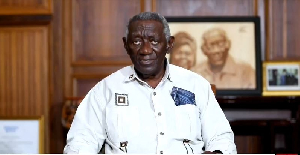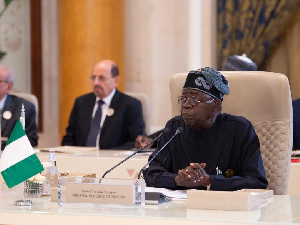…endorses police action for rejection of one cedi coin
Paul Aquah, Governor of the Bank of Ghana has indicated the central bank’s preparedness to mull over suggestions on the introduction of a two pesewa coin or the re-minting of the one pesewa coin to deal with the case of the now defunct one pesewa coin.
Dr Aquah also endorsed the suggestion of reporting persons who rejected the one pesewa coin to the police, saying that the one pesewa coin “is legal tender and remains a medium of payment accepted by law”.
He acknowledged that the dislike for such lower denominations of currency was not peculiar to our country, saying that even in the UK, many people kept large collections of the penny until they moved residence, during which they deposited them at the bank. “But an outright rejection of the penny is not in their vocabulary, and it constitutes a breach of the law”, he told the Financial Intelligence in a chat last week.
On the usual excuse that the coin was of inferior quality, the governor explained that it was a matter of principle that the physical value of a currency should not exceed its exchange value to forestall its usage for other purposes.
He nevertheless indicated the bank’s preparedness to re-mint the coin to a preferable size if it finds that to be a major area of concern.
The one Ghana Pesewa coin was one of the currencies introduced by the Bank of Ghana (BoG) in its redenomination exercise in July 2007, but it appeared to have lost its value as legal tender shortly after the exercise.
Many reject the coin on the grounds that it is difficult to handle because of its smallness, whilst others complain that it easily gets corroded. The outright rejection of the coin, though illegal, has become an accepted practice today, and many grumble about the monetary authority’s failure to address the situation in time.
Among other criticisms that greeted the redenomination exercise was concerns about the omission of an equivalent for the old ¢200 (two pesewa coin) and ¢20,000 (two Ghana cedi note), units of currency which are common with most international currencies.
Also of much concern was the failure to introduce an equivalent for the old ¢50, which per the setting of the old ¢10,000 to GH¢1 became 0.5 pesewa. Fears of fuelling inflationary tendency by this omissions gained grounds when most traders began rounding-off all prices below the old ¢500 to 5 pesewa.
Mr Asuo Afram of the Ghana Statistical Service (GSS) told this reporter last Friday that the likely effect of the redenomination exercise on inflation cannot be challenged, but pointed out that his outfit was yet to conduct a survey to ascertain the facts.
Credit: Financial Intelligence (Charles K. Amoah)
Business News of Thursday, 21 May 2009
Source: Financial Intelligence
















